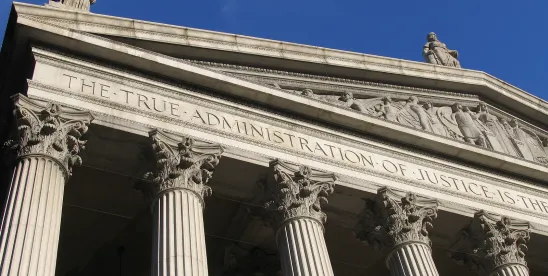The U.S. Supreme Court recently issued an opinion addressing who qualifies as a “transportation worker” under the Federal Arbitration Act (FAA) thereby exempting them from coverage. The Court's opinion has potentially far-reaching implications limiting certain employment claims from being sent to arbitration.
Congress enacted the FAA in 1925 to override the longstanding refusal of courts to enforce arbitration agreements. Although the FAA is intended to broadly apply to employees in general, the FAA includes an exemption for “contracts of employment of seamen, railroad employees, or any other class of workers engaged in foreign or interstate commerce.”
On April 12, 2024, in Bissonnette v. LePage Bakeries Park St., LLC, the Supreme Court decided a case involving a company that produces and markets baked goods that are distributed nationwide brought by two workers who owned the rights to distribute the company's products in certain parts of Connecticut. The employees argued that their lawsuit filed should not be subject to arbitration, because the plaintiffs were “transportation workers” and, therefore, exempt from arbitration under the FAA. A district court disagreed with the workers and determined they were not “transportation workers.” The Second Circuit affirmed the district court's decision, holding the “transportation worker” exemption only applied to workers in the transportation industry. Because the workers in Bissonnette worked in the bakery industry, the Second Circuit reasoned that they were not exempt from arbitration pursuant to the FAA.
The U.S. Supreme Court disagreed with and vacated the Second Circuit's opinion. The Supreme Court held that “[a] transportation worker need not work in the transportation industry to be exempt from coverage under § 1 of the FAA.” The Supreme Court explained that whether a worker works in the “transportation industry” does not determine whether the worker is exempt from the FAA. Instead, the relevant question is whether the worker is "'actively' 'engaged in transportation’ of . . . goods across borders via the channels of foreign or interstate commerce" and if the worker plays "a direct and necessary role in the free flow of goods across borders.” The Supreme Court sent the case back to the lower court to analyze the case under this new standard.
The Supreme Court's opinion clarifies what type of worker is exempt from arbitration under the FAA by focusing primarily on the type of services a worker provides rather than the industry in which a worker works. If an employee's primary job duties include transporting goods across state borders, then he or she may be exempt from arbitration under the FAA, even if they do not work in the “transportation industry.”
“A transportation worker need not work in the transportation industry to be exempt from coverage under § 1 of the FAA.”




 />i
/>i

